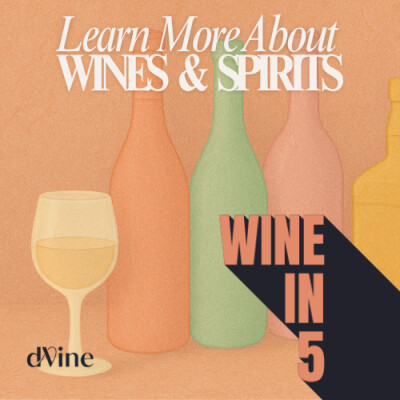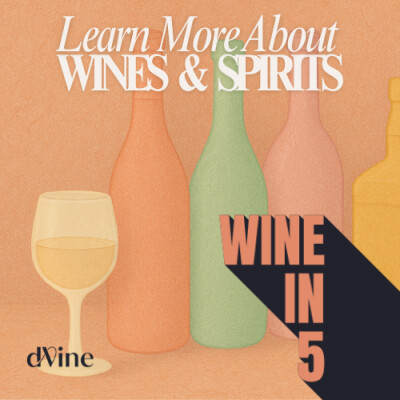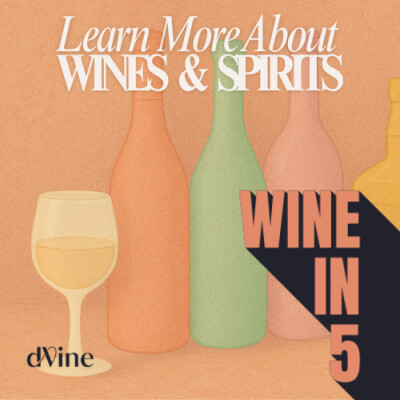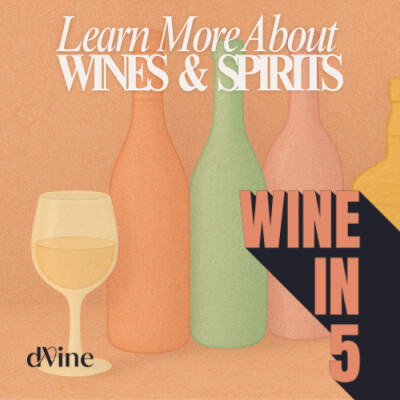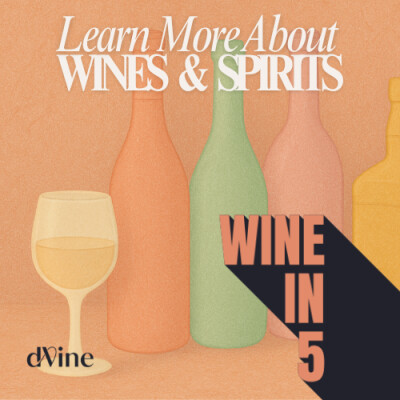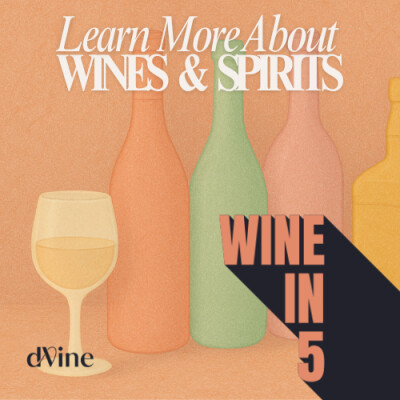- Speaker #0
Welcome to Wine in 5, the podcast to discover the world of wine and to develop your knowledge.
- Speaker #1
Hello, my name is Beatrice Domini. I'm the Enologist for Divine Company and I'm sharing this moment with Alistair Cooper, Master of Wine. Hello Alistair, how are you today?
- Speaker #2
I'm very good, how are you?
- Speaker #1
I'm fine, I'm always fine when I talk about wine.
- Speaker #2
Fine when you talk about wine. I like your rhyming there. Me too.
- Speaker #1
And welcome everybody to Wine in 5. We talk about wine and I wanted to talk with you today about winespeak. You know, sometimes you describe the wine and people just look at you and think, how can you find this apricot aroma? Or you're talking about limestone. I don't know. I don't understand. Yeah. So.
- Speaker #2
uh can you help them it's a good it's a really good it's a really good point actually and and i think it's possibly one of the reasons that that historically can alienate certain people you know i think it can be it can be um a daunting subject for people say you know they hear a wine professional talking about oh a bouquet of honeysuckle and hollyhocks with a with a mineral flinty edge like you're sucking wet stones and they're thinking but that what I've never sucked a wet stone. I don't know what, you know, it can be, we can use metaphors for things and, you know, a flinty wine. Well, what is that? What is licking a stone? It can be a little bit, it can come across as a little bit elitist perhaps and a little bit, and not accessible for people. So sometimes I think winespeak can be a little bit pretentious perhaps. We use certain words. but But when you're actually in it, those are just words that we use to associate it. I think often we use fruit is an obvious descriptor that we use. As you say, if you say to someone, apricot can be, people know what apricot smells and tastes like. That's kind of relatively understandable, orange peel or something. But when we talk about minerality or stoniness or other things, it can become. Quite daunting for people. So I think there are certain, within grapes, there are certain chemicals that you do find. There's one that I've mentioned before called rotundone that you find in pepper, which is actually also found in the grape Syrah, which we often smell and describe as peppery, or Grunewaldina, a white wine that also has rotundone, so it is peppery. So often you do have chemicals or components in grapes that do mirror what we're describing them as. but
- Speaker #1
but not always yes because uh some people said sometime to me oh i smell of raspberry and you said uh cherry so i'm wrong and said no you're not wrong it's an interpretation it's what reminds me this flavor reminds me that sort of fruit sort of red fruit yeah and i can say a strawberry you can say cherry raspberry whatever whatever and i think and i think that's one of the absolute fundamental points here because people do,
- Speaker #2
people... a worry that if you are seen as a wine professional and you find cherry pepper wild strawberry and they smell it and and they just smell wine you know that's fine but it it comes with experience as well and that's just our way we have our own vocabulary of describing things and it shouldn't worry people no there is no wrong because we're not smelling cherries in the wine there's no chocolate in the wine um so i think that's the problem where people people take it literally of how we describe wines. You build up your own language, you build up your own dictionary within your brain to describe things. And mine might not be the same as yours, as you say. Yeah,
- Speaker #1
because sometimes we refer to your childhood. And we call that Madeleine de Proust. You know, there's the flavor that you will see you as a young person at your grandparents' attic, maybe, you know, looking at, you know, the things that you discover every year. because you know And that reminds you really of aromas that will be different depending where you've lived and where you've been on holiday or whatever. And not everybody's got exactly the same memory.
- Speaker #2
No, no, nobody has the same memory. You know, that's the truth of it. Nobody has the same memory. So our ways of describing things are very, very personal. And some people have a more acute sense of taste and smell, of course. So my keyboard... point would be to people don't get too worried about trying to have the same tasting note as someone else but but try and find in great varieties similar similar um smells and tastes and that might help you kind of increase your vocabulary if you want to you don't have to
- Speaker #1
Yeah, I think it's a very good conclusion. Enjoy the tasting. Don't stress. Don't think you're going to be wrong. Just express yourself and share. That's the main thing, is the sharing between two persons. I think it's sometimes often compared to a new language, in a sense that if you don't speak the same language as the person in front of you, it's complicated to communicate. And... mastering in a sense well trying to get words easily on describing wines allows you actually to be able to speak with the person next to you next to you yeah and talking to other people about it you know saying what do you find what is this and then you you can maybe understand what it is that they're saying so yeah it's certainly not a science well i think i'm definitely looking forward to share a glass of wine with you then sounds good where's the bottle bye
